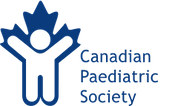Children’s healthcare professionals should promote literacy development
OTTAWA— Literacy is an essential life skill that begins in early childhood, but nearly half of adults in Canada struggle with low literacy. This can lead to low self-esteem and anxiety in children and is related to lower economic prospects and social functioning in adulthood.
Children’s healthcare providers (HCPs) play a key role in identifying children and families at risk of low literacy. That’s why the Canadian Paediatric Society (CPS) is calling on HCPs to screen for and help manage low literacy in at-risk children and families.
“Literacy is a foundational skill that affects a child’s future success. Pediatricians and other healthcare providers play a key role in identifying reading difficulties early in childhood. By screening children at regular check-ups, families can be directed to resources that support literacy development and can request evidence-based reading programs in the classroom,” says Dr. Anne Kawamura, one of the lead authors of the position statement.
New guidelines released today recommend that HCPs promote literacy by screening children between four and seven years old for risk of reading difficulties or dyslexia, and collaborate with teachers, schools, and governments to ensure access to evidence-based reading interventions that incorporate phonemic awareness and systematic phonics instruction.
These guidelines build on 2021 recommendations that HCPs talk to parents of young children about the benefits of reading, speaking, and singing to their children every day from birth. Literacy development begins in infancy; babies’ brains grow when an adult lovingly responds to their babbles, gestures, and cries. “Regardless of their own comfort with reading, parents and caregivers can help their children learn language by singing songs – which help them learn language structure and vocabulary – and by telling stories about their shared experiences throughout the day,” said Dr. Alyson Shaw, a paediatrician at CHEO in Ottawa.
These early interactions lead to language development and early literacy skills and build resilience in children and families by promoting healthy parent-child relationships.
“The Canadian Children’s Literacy Foundation applauds CPS for its significant commitment to improving children’s overall health and development through literacy. By equipping healthcare providers with evidence-based guidance on how to support children’s reading journeys, CPS is strengthening providers’ ability to help children develop the skills they need to thrive." said Ariel Siller, CEO of the Canadian Children’s Literacy Foundation (CCLF).
To better support physicians and families, the CPS is also calling for enhanced medical training on early literacy and learning disabilities. Paediatricians and other child healthcare providers are encouraged to advocate for the government to include evidence-based reading instruction starting in kindergarten curriculums.
—30—
About the Canadian Paediatric Society
The Canadian Paediatric Society is a national advocacy association that promotes the health needs of children and youth. Founded in 1922, the CPS represents more than 3,300 paediatricians, paediatric subspecialists and other child health professionals across Canada.
Last updated: Oct 24, 2024
